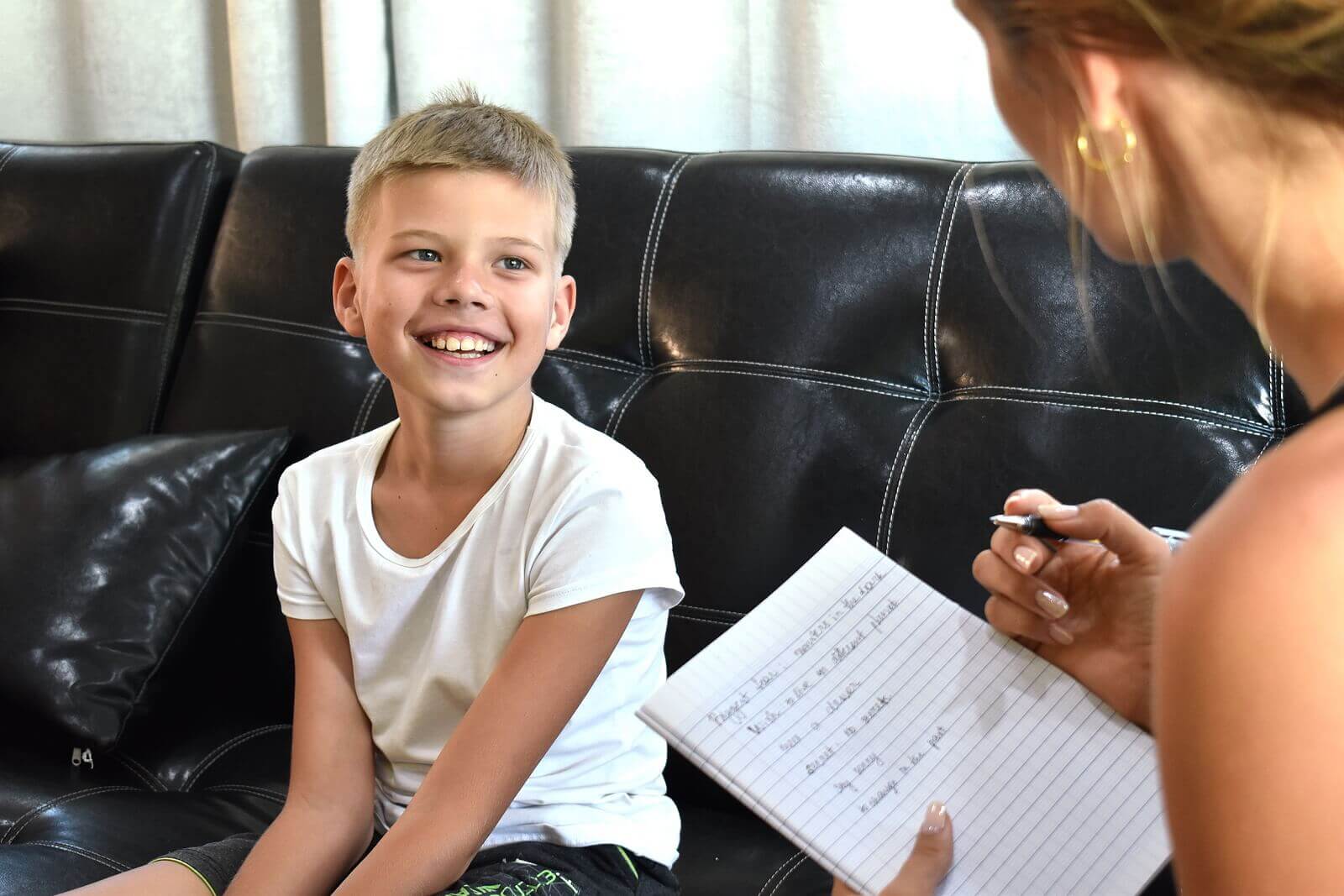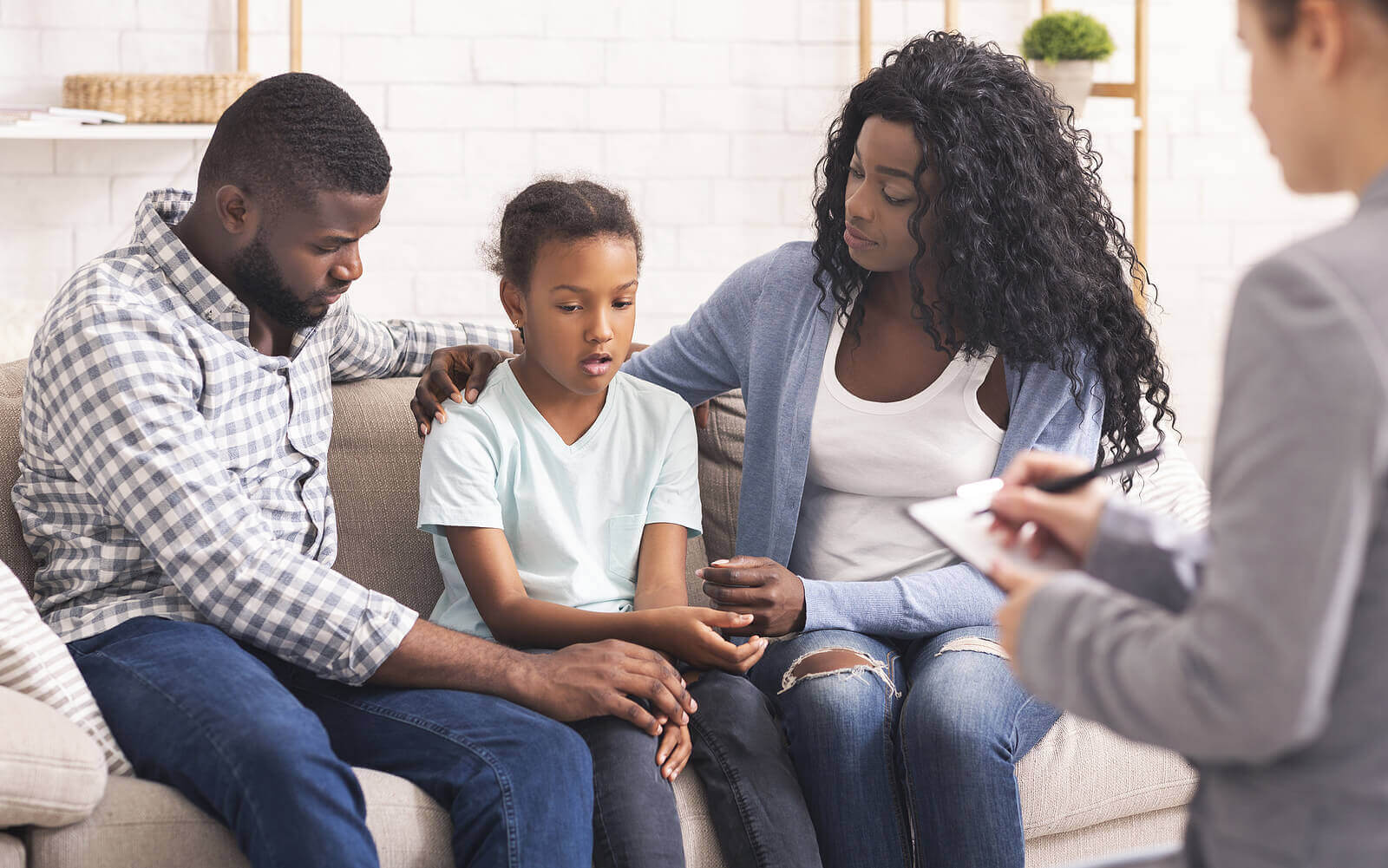Help Children Normalize Psychological Attention


Written and verified by the psychologist Elena Sanz Martín
There are more adults that have stopped viewing psychiatry as something for people with serious mental health issues. Rather, they’ve come to see it as something that can help healthy people on a number of occasions. However, a certain negative stigma still remains which society can pass on to our kids. Therefore, it’s important to help children normalize psychological attention.
Of course, we want new generations to enjoy the benefits of good mental health. And it goes without saying that we want them to be able to access the resources they need without guilt or prejudice. This means that we need to break down the stigma that surrounds psychology and help our children understand its many benefits.
There are many conditions and circumstances that can cause children or teens to require professional help. Behavioral problems, anxiety, learning difficulties, complicated losses…
In the past, children carried the burden of judgment and lack of understanding from their peers and friends. Therefore, it’s important to show them that seeing a psychiatrist is just like seeing a medical doctor when you’re not feeling well. When we’re going through hard times, we can see a psychologist.

Why should we teach our children to normalize psychological attention?
Children are a blank sheet of paper, full of innocence and without prejudice. However, we adults transmit the idea that something is good, bad, acceptable, or unacceptable. Therefore, childhood is the ideal time to teach and educate children in values like respect, empathy, and understanding. And normalizing psychological attention is an important task for a number of reasons.
Understanding others
Sometimes it’s hard to put ourselves in the shoes of someone else who’s suffering. When something is simple or easy for us, it’s difficult to imagine that it can be complicated for others.
This is especially true when it comes to mental and emotional health. Criticizing those who ask for help is all too frequent. Society doesn’t question having a fever or a stomach ache, but they point fingers at those who experience anxiety or depression.
It’s very likely that, at some point in their academic career, children will talk about a classmate seeing a psychiatrist. If you’ve taught them to normalize psychological attention as something valid and healthy, they’ll be more understanding and kind. They’ll be able to empathize with the other child and support them in their process.
Asking for help when they need it
At the same time, our own children may experience psychological or emotional difficulties that are hard to face alone. In these moments, the idea they have regarding seeing a psychologist will be decisive. In other words, it will determine whether they ask for help or continue to suffer, feeling guilty about their problems.
Normalizing psychological attention will help them take advantage of the resources they need when they feel anxious or sad. It will remind them that there are people who are willing and able to help them and teach them what they need to flourish. Our little ones need to grow up in a world where they understand that they don’t need to have it all together – where they never need to feel ashamed of their emotions. In short, normalizing psychological attention will help them comprehend the importance of mental health and the right they have to receive the support they need.

How to help children normalize psychological attention?
The following are some guidelines that can help us teach our little ones to normalize psychological attention:
- It’s important to educate our children in emotional intelligence from the time they’re little. Talk openly about emotions at home and teach children to recognize and express them. This way, they’ll know how do detect when something is wrong inside and also how to communicate that.
- Explain what a psychologist’s job is and answer any questions your children have on the subject. Tell them that a psychologist is a person that teaches us how to handle our emotions and provides resources, tools, and exercises to help us feel better.
- Set an example: This will always be the most effective way to send a message to your children. Remember to care for your own mental health. If you’ve ever seen a psychologist, share that experience with your child.
Normalize psychological attention from the time children are young so they carry this lesson with them all their lives. Demonstrating a positive attitude on the subject will help them make the decision to ask for help when they need it. And, at the same time, it will help them support and encourage others who do the same.
There are more adults that have stopped viewing psychiatry as something for people with serious mental health issues. Rather, they’ve come to see it as something that can help healthy people on a number of occasions. However, a certain negative stigma still remains which society can pass on to our kids. Therefore, it’s important to help children normalize psychological attention.
Of course, we want new generations to enjoy the benefits of good mental health. And it goes without saying that we want them to be able to access the resources they need without guilt or prejudice. This means that we need to break down the stigma that surrounds psychology and help our children understand its many benefits.
There are many conditions and circumstances that can cause children or teens to require professional help. Behavioral problems, anxiety, learning difficulties, complicated losses…
In the past, children carried the burden of judgment and lack of understanding from their peers and friends. Therefore, it’s important to show them that seeing a psychiatrist is just like seeing a medical doctor when you’re not feeling well. When we’re going through hard times, we can see a psychologist.

Why should we teach our children to normalize psychological attention?
Children are a blank sheet of paper, full of innocence and without prejudice. However, we adults transmit the idea that something is good, bad, acceptable, or unacceptable. Therefore, childhood is the ideal time to teach and educate children in values like respect, empathy, and understanding. And normalizing psychological attention is an important task for a number of reasons.
Understanding others
Sometimes it’s hard to put ourselves in the shoes of someone else who’s suffering. When something is simple or easy for us, it’s difficult to imagine that it can be complicated for others.
This is especially true when it comes to mental and emotional health. Criticizing those who ask for help is all too frequent. Society doesn’t question having a fever or a stomach ache, but they point fingers at those who experience anxiety or depression.
It’s very likely that, at some point in their academic career, children will talk about a classmate seeing a psychiatrist. If you’ve taught them to normalize psychological attention as something valid and healthy, they’ll be more understanding and kind. They’ll be able to empathize with the other child and support them in their process.
Asking for help when they need it
At the same time, our own children may experience psychological or emotional difficulties that are hard to face alone. In these moments, the idea they have regarding seeing a psychologist will be decisive. In other words, it will determine whether they ask for help or continue to suffer, feeling guilty about their problems.
Normalizing psychological attention will help them take advantage of the resources they need when they feel anxious or sad. It will remind them that there are people who are willing and able to help them and teach them what they need to flourish. Our little ones need to grow up in a world where they understand that they don’t need to have it all together – where they never need to feel ashamed of their emotions. In short, normalizing psychological attention will help them comprehend the importance of mental health and the right they have to receive the support they need.

How to help children normalize psychological attention?
The following are some guidelines that can help us teach our little ones to normalize psychological attention:
- It’s important to educate our children in emotional intelligence from the time they’re little. Talk openly about emotions at home and teach children to recognize and express them. This way, they’ll know how do detect when something is wrong inside and also how to communicate that.
- Explain what a psychologist’s job is and answer any questions your children have on the subject. Tell them that a psychologist is a person that teaches us how to handle our emotions and provides resources, tools, and exercises to help us feel better.
- Set an example: This will always be the most effective way to send a message to your children. Remember to care for your own mental health. If you’ve ever seen a psychologist, share that experience with your child.
Normalize psychological attention from the time children are young so they carry this lesson with them all their lives. Demonstrating a positive attitude on the subject will help them make the decision to ask for help when they need it. And, at the same time, it will help them support and encourage others who do the same.
All cited sources were thoroughly reviewed by our team to ensure their quality, reliability, currency, and validity. The bibliography of this article was considered reliable and of academic or scientific accuracy.
- Castro, M. A. (2020, 17 junio). La desestigmatización de la enfermedad mental. Recuperado agosto de 2020, de https://lamenteesmaravillosa.com/la-desestigmatizacion-de-la-enfermedad-mental
- Sánchez, E. (2019, septiembre 14). Acudir a un psicólogo – La mente es maravillosa. Recuperado agosto de 2020, de https://lamenteesmaravillosa.com/acudir-a-un-psicologo
This text is provided for informational purposes only and does not replace consultation with a professional. If in doubt, consult your specialist.








